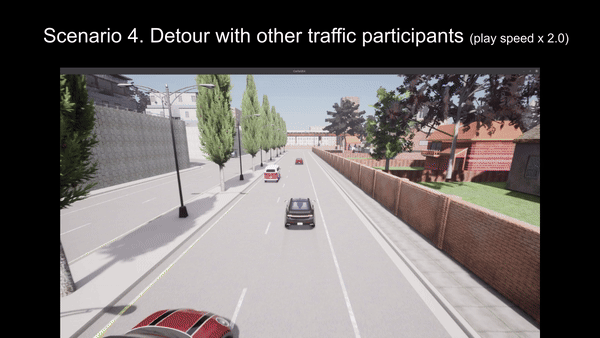Trajectory Planning for Autonomous Vehicle Using Iterative Reward Prediction in Reinforcement Learning
 Trajectory Planning Using Reinforcement Learning
Trajectory Planning Using Reinforcement Learning🧾 Introduction
- Traditional trajectory planning for autonomous vehicles often relies on heuristics or simple rules, which limit generalization and complex behavior handling.
- Reinforcement learning (RL) has the potential to overcome these limitations, but suffers from instability and often ignores uncertainty during planning.
- This work addresses both issues by proposing an uncertainty-aware RL-based trajectory planner.
⚙️ Method
- The proposed method uses an iterative reward prediction framework, which forecasts expected future states and incorporates them into the learning process to improve training stability.
- Additionally, it applies uncertainty propagation techniques to make the agent aware of environmental and model uncertainties during trajectory planning.
- This dual approach improves both the robustness and adaptability of the RL agent.
✅ Result
- The method was evaluated in the CARLA simulator and compared with baseline RL planners.
- It reduced the collision rate by 60.17% and increased the average reward by 30.82×, demonstrating significant improvements in both safety and performance.